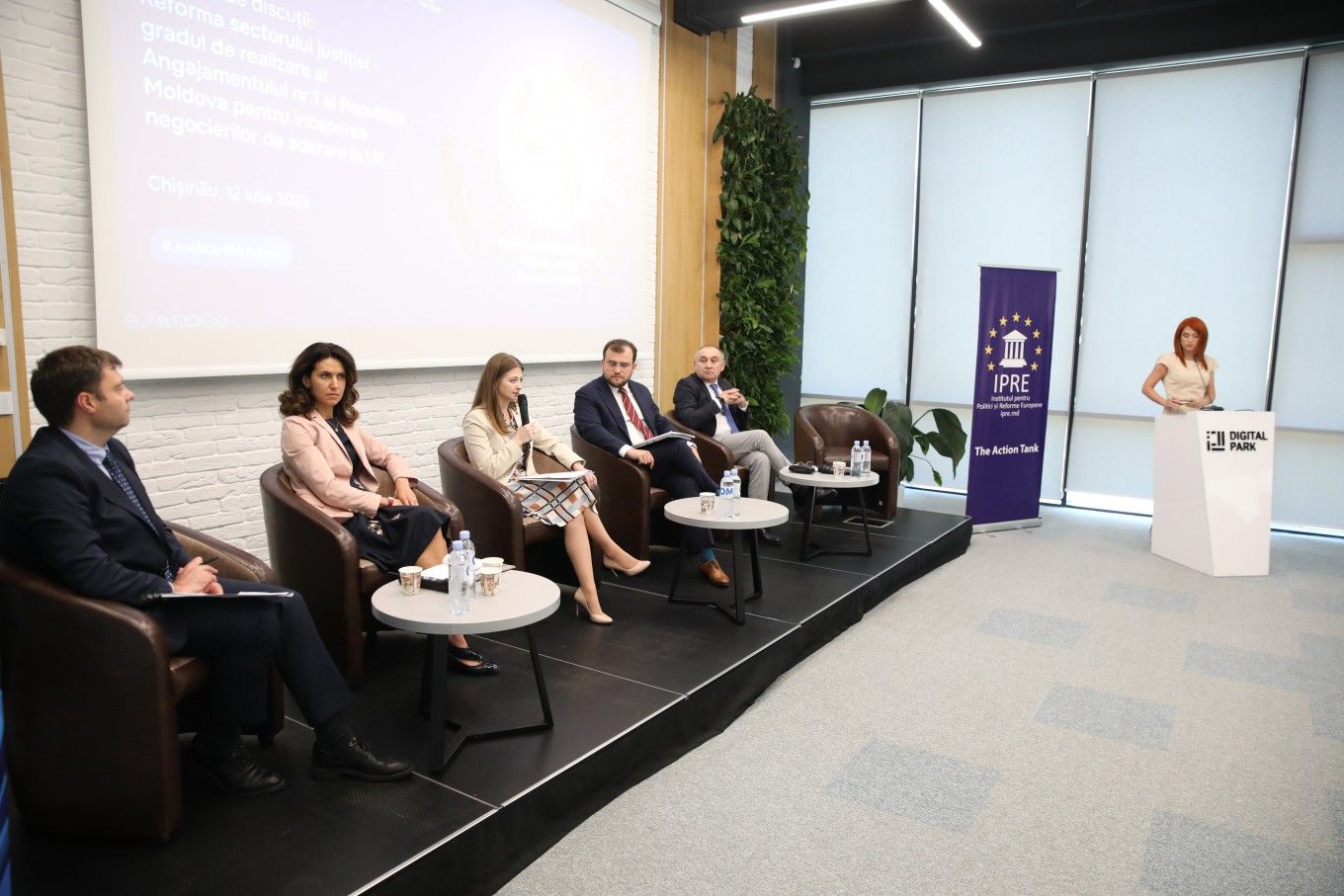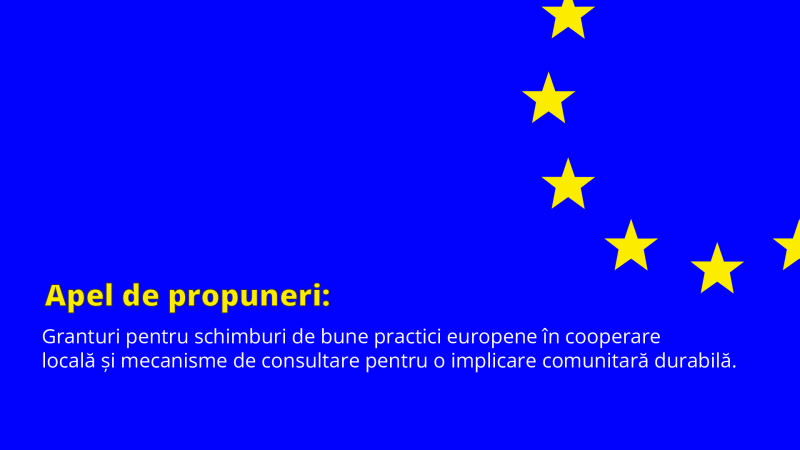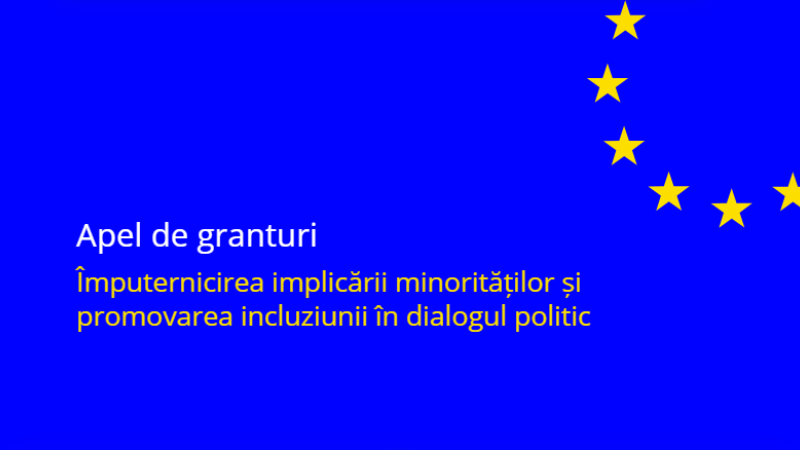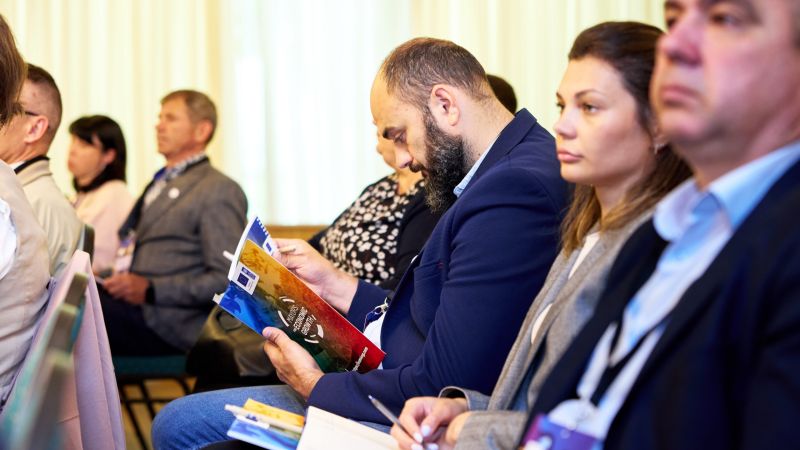
Dialog de politici #Justice4Moldova – revizuirea hărții judiciare
La data de 12 decembrie 2023, Ministerul Justiției a publicat proiectul de lege pentru modificarea unor acte normative (privind revizuirea hărții judiciare). Prin acest proiect, Ministerul Justiției intervine cu propuneri de modificare a hărții judiciare prin redistribuirea unor sedii ale judecătoriilor Bălți, Cimișlia, Edineț, Cahul, Strășeni, Comrat, Drochia, Hâncești și Ungheni.
La fel, prin acest proiect de lege Ministerul Justiției propune reconfigurarea curților de apel prin redenumirea și reorganizarea acestora în Curtea de Apel Centru, Curtea de Apel Nord și Curtea de Apel Sud.
În luna decembrie 2023 , Grupul de Experți în Domeniul Justiției (GEJ) din cadrul Institutului pentru Politici și Reforme Europene (IPRE), a formulat o Notă de Poziție pe marginea proiectului de lege în cauză, precum și o opinie adițională în cadrul exercițiului de avizare repetată a respectivului proiect de lege în ianuarie curent.
În acest context, IPRE, în parteneriat cu Institutul pentru Raportarea Războiului și Păcii (IWPR), a organizat, miercuri, 14 februarie 2024, un dialog de politici, din cadrul proiectului #Justice4Moldova, cu privire la revizuirea hărții judiciare. În continuare, vă propunem câteva dintre principalele intervenții ale vorbitorilor:
Angela Popil, Membră, Grupul de Experți în Domeniul Justiției, IPRE: „Harta judiciară în noul format a fost aplicată în 2017 și ca rezultat a evoluării acestei legi, care a fost aprobată în 2016, s-au inițiat mai multe studii privind evaluarea modificărilor propuse atunci. Ca rezultat, avem un proiect de lege, elaborat de Ministerul Justiției, prin care se propune o intervenție serioasă în harta judecătorească de astăzi. Această inițiativă a venit la avizare la 12 decembrie 2023, prin care, am constatat noi, se propun intervenții în partea care se referă atât la infrastructura instanțelor judecătorești de nivel întâi, cât și la cele de apel. Atunci când vorbim despre reconfigurarea instanțelor judecătorești de nivelul întâi, acesta viza transferul unor sedii secundare de la anumite judecătorii la altele. S-a propus redenumirea instanțelor de apel, pornind de la inițiativele de reformă a administrației publice pe regiuni (Centru, Nord și Sud), astfel încât Curtea de Apel Bălți să fie redenumită „Nord”, cea din Chișinău „Centru” și cele de la Cahul și Comrat să fie reorganizate într-o singură curte de apel Sud. Astfel, analizând proiectul de lege în prima etapă, noi am considerat că aceasta, mai mult sau mai puțin, satisface cerințele sistemului judecătoresc de reconfigurare a instanțelor judecătorești. Este necesar în situația în care se impune intervenții din perspectiva organizării eficiente a instanțelor judecătorești, pentru că trebuie să se ia în considerare atât volumul de lucru per instanță judecătorească, judecător, concentrația instanțelor la numărul de populație, reieșind din numărul populației. Chiar dacă am salutat această decizie, prin opinia noastră din 22 decembrie 2023, noi am formulat unele recomandări în situația în care am considerat că necesită o mai bună argumentare a acestei decizii. De exemplu, am fost de acord cu transferul judecătoriei Leova la cea din Hâncești, însă nu am acceptat propunerea de creare a unei instanțe independente în orașul Ialoveni, separată de judecătoria din Hâncești, în situația în care această propunere nu a fost justificată. Propunerile noastre au fost comunicate Ministerului Justiției și am observat că, după expedierea la avizare repetată a acestui proiect de lege, marea majoritate a recomandărilor noastre au fost acceptate de către autori”.
Sorin Popescu, Director Agenția de Administrare a Instanțelor Judecătorești: „Trebuie să înțelegem că ceea ce reiese din obiectivul proiectului este – consolidarea capacităților instituționale ale instanțelor judecătorești, îmbunătățirea actului de justiție și sporirea eficienței instanțelor, asigurarea cât mai bună a fondurilor publice alocate acestora, crearea condițiilor administrative și reconfigurarea circumscripțiilor instanțelor de apel. Acestea sunt momentele la care trebuie să ne gândim când examinăm propunerile. Aș vrea să menționez că avem alte recomandări importante pentru reorganizarea hărții judecătorești. E vorba de factorii cheie, cum ar fi densitatea populației, iar recomandările spun că o instanță trebuie să acopere nu mai puțin de 100 de mii de locuitori. Avem și dimensiunea instanței, unde este menționat că pentru specializarea judecătorilor este necesar 10-12 judecători ca să fie specializați pe diferite aspecte și cauze. Nu mai puțin important este și fluxul de muncă. CEPEJ recomandă aproximativ 53 de dosare judecător/lună. La fel este important și localizarea geografică, infrastructura și transportul. Pe lângă aceasta noi avem și niște factori adiționali, cum ar fi – informatizarea/digitalizarea instanțelor, facilitățile instanțelor și complexitatea culturală, dar și cât este de dezvoltată localitatea etc. Astfel, pe parcursul anului 2023 noi am avut mai multe runde de discuții pe acest proiect. Acesta practic este o continuitate a lucrului efectuat de Consiliul Superior al Magistraturii, deoarece anterior au fost efectuate mai multe studii. Și, aș vrea să menționez că o soluție ideală nu poate să existe la etapă de reorganizare, de aceea noi trebuie să reieșim din criteriile menționate anterior și necesitățile cetățenilor”.
Ion Guzun, Membru al Consiliului Superior al Magistraturii: „Eu mă bucur că acest proiect a reapărut în atenția publică, pentru că timp de 7 ani noi mai mult am simulat că există o implementare a acestei legi. Pe parcursul ultimului an calendaristic, au fost foarte multe runde de discuții, iar noi la CSM de două ori am avizat acest proiect de lege. Deci, eu cred că am discutat suficient pentru a avea o claritate despre opțiunile finale ce ține de circumscripțiile instanțelor judecătorești noi și Curților de Apel. În opinia mea, noi trebuie să pornim de la o premisă conform căreia Judecătoria și Curtea de Apel Chișinău, indiferent de opțiunile care sunt, vor fi cele mai mari instanțe. Întrebarea este în ce măsură noi putem descărca Curtea de Apel și cât de mult noi putem să suplinim numărul judecătorilor instanței din Chișinău. Cred că acest proiect de lege clarifică acest lucru. De asemenea, eu vreau să menționez că indiferent de cum noi structurăm aceste instanțe mai mici, noi trebuie să lăsăm două sedii strategice, care acoperă localitățile Varnița și Ustia. Noi trebuie să fim mai aproape de cetățenii noștri și nu cred că impactul acestor instanțe mici ar putea să afecteze foarte mult conceptul de reorganizare a instanțelor judecătorești. Astfel, noi avem acum un consens, iar noi, la CSM, trebuie să vedem cum putem demara anumite reforme ce țin de competența noastră”.
Vladislav Gribincea, Director programul Justiție, CRJM: „Această reformă nu este despre astăzi, despre ieri și nici despre mâine. Este despre cum va arăta justiția noastră în 20 sau chiar 50 de ani, fiindcă ea nu poate fi făcută la fiecare 3-5 ani sau în fiecare legislatură. De aceea, deciziile care vor fi luate trebuie să fie în baza datelor obiective, fără preferințe, cu inima fierbinte, dar cu mintea trează. Înțeleg că este incomod, dar haideți să ne gândim obiectiv. Noi vorbim de o reformă de comasare a 40 de sedii a judecătoriilor în mai puține. Noi spunem că e foarte dureros. Noi optimizăm spitale și școli pentru a da calitate. Dar, în școală persoanele călătoresc în fiecare zi. În justiție, statistic, persoanele merg de 2-3 ori în viață. Deci, este incomod, deoarece administrația locală nu vrea să piardă controlul direct asupra sediilor în care se află. Doi. Este incomod și pentru judecători, deoarece mulți din ei vor trebui să își schimbe locul unde lucrează sau trăiesc. Trei – reforma schimbă modul de lucru de astăzi. Deci, am auzit multe critici despre reformă, dar care nu sunt despre reformă, deoarece reforma a fost făcut doar pe hârtie, dar schimbările nu au fost asigurate. Dacă vorbim despre reformă atunci este despre situația actuală, ceea ce este o justificare a reformei. Această reformă nu poate fi implementată de una singură. Ea trebuie să meargă mână-n mână cu digitalizarea justiției, iar acesta este o tendință generală, deoarece nu mai contează care este distanța fizică a persoanei de la locul unde trăiește până la judecătorie. Este nevoie și de simplificarea procedurilor judiciare, adică digitalizarea, teleconferințele. Deci, acestea trebuie să meargă mână în mână cu optimizarea”.
Pentru mai multe detalii, puteți urmări înregistrarea video a evenimentului pe privesc.eu aici.
Evenimentul a fost organizat în cadrul proiectului „Asigurarea integrității, eficienței și independenței sistemului de justiție din Moldova – #Justice4Moldova”, implementat de Institutul pentru Poliție și Reforme Europene (IPRE), în consorțiu cu Institutul pentru Raportarea Războiului și Păcii (IWPR), cu sprijinul financiar al Uniunii Europene și co-finanțat de Fundația Soros Moldova.








